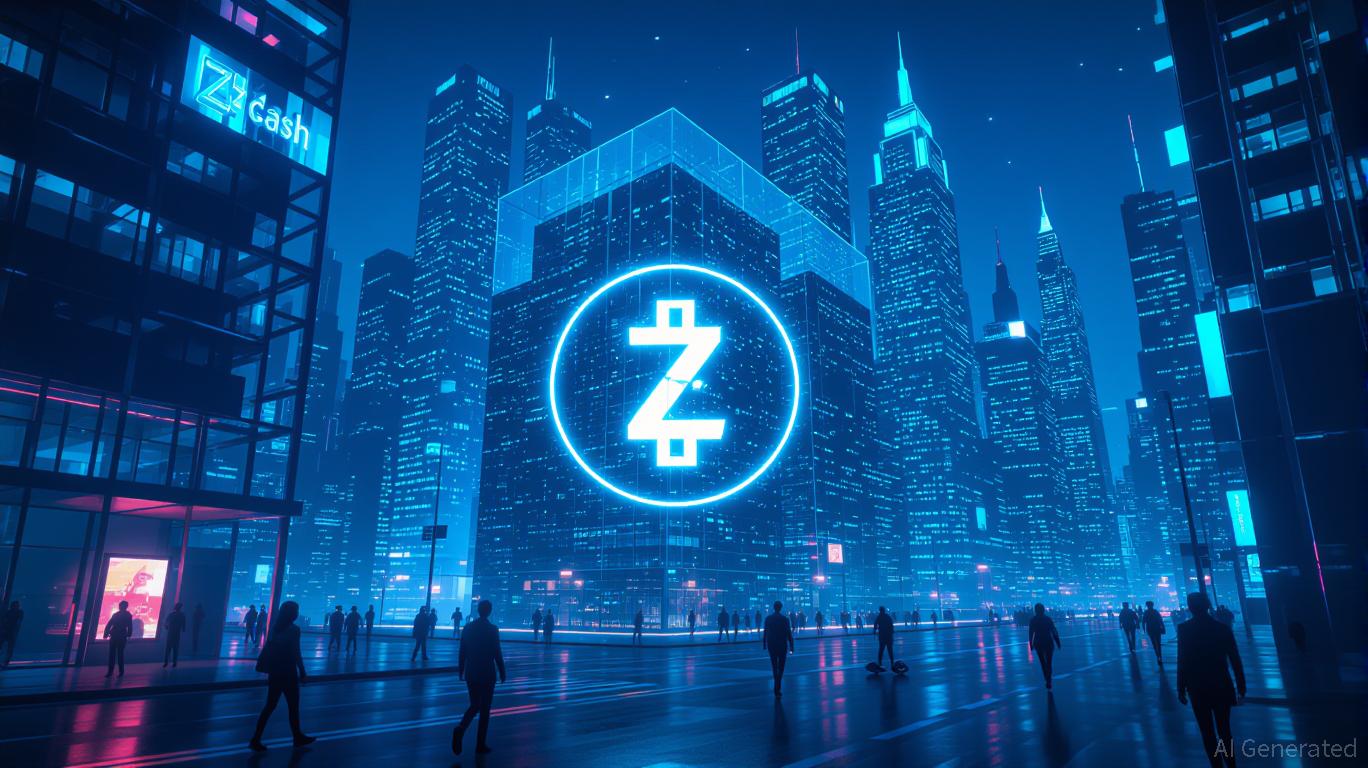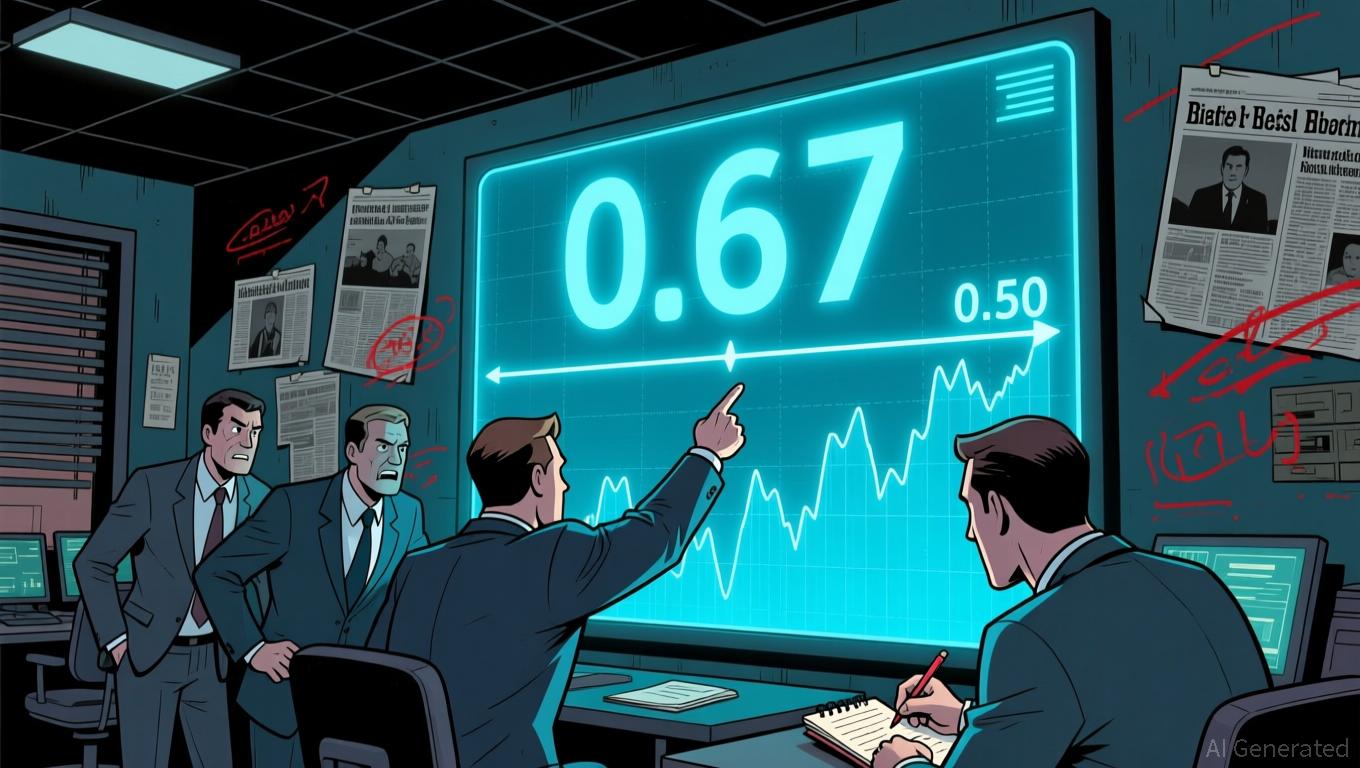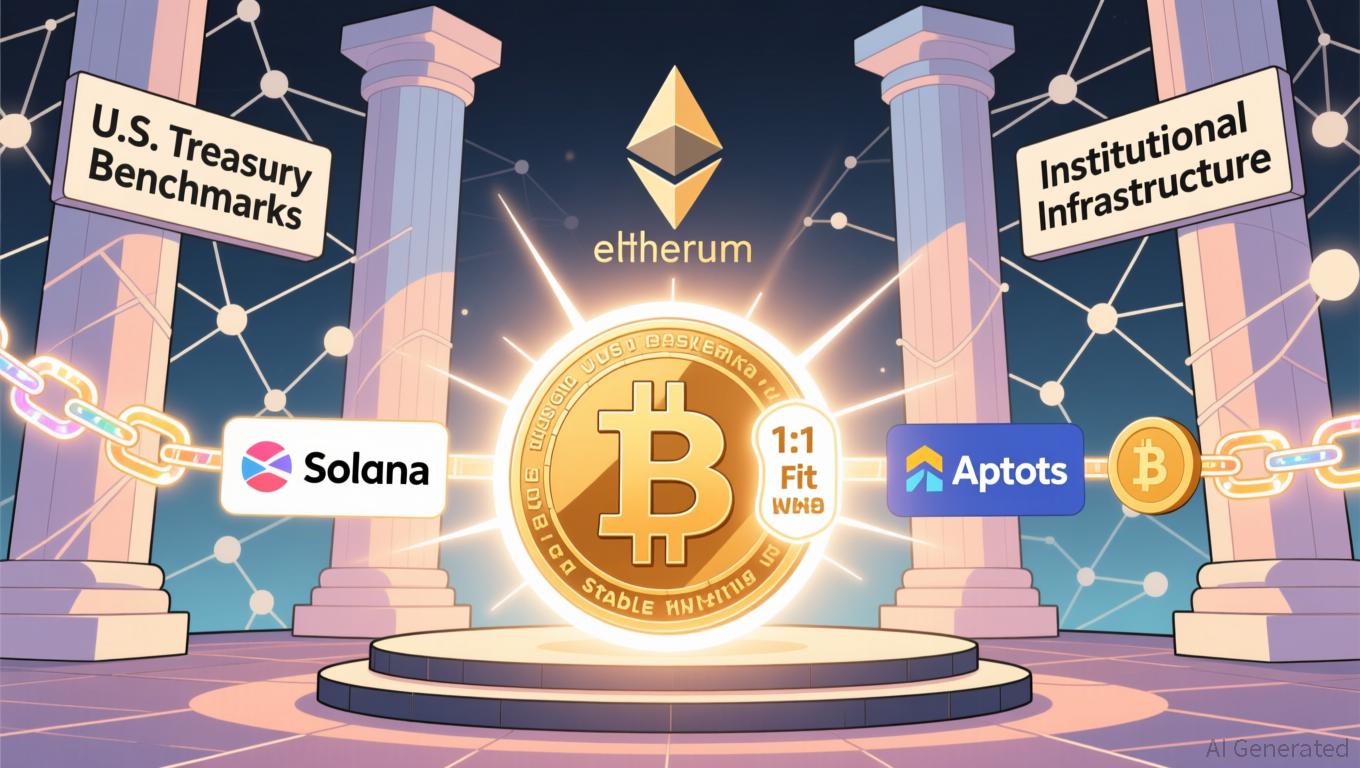Zcash (ZEC) and the Revival of Privacy Coins: Adapting to Regulatory Changes and Growing Institutional Attention
- Zcash (ZEC) surged over 1,000% in 2025 despite regulatory bans on privacy coins, peaking at $440. - EU and US regulators target privacy coins via bans and transaction reporting rules, aiming to curb illicit finance. - Institutional investors adopt Zcash as a privacy hedge, with products like Grayscale Zcash Trust gaining traction. - Zcash's zk-SNARKs technology bridges privacy and compliance, influencing blockchain innovation and regulatory debates. - Rising demand for privacy highlights tensions between
Regulatory Pressures and the Privacy Paradox
The regulatory environment for privacy coins has become increasingly hostile.
Nevertheless, Zcash’s architecture—which enables users to opt in to privacy via zero-knowledge proofs (zk-SNARKs)—has made it more acceptable to regulators than coins like Monero that default to anonymity
Institutional Adoption and the Privacy Premium
More institutional investors are turning to privacy coins, seeing them as a supplement to
In addition,
The Broader Implications for Crypto Ecosystems


The renewed interest in privacy coins also signals a significant shift in blockchain innovation.
Still, regulatory challenges are significant. The EU’s 2027 restrictions, for example, may force trading platforms to choose between regulatory compliance and supporting privacy-oriented assets. Yet, these very restrictions could drive innovation in decentralized, censorship-resistant platforms. As one analyst puts it, "The harder regulators try to eliminate privacy, the more it becomes a collective good that people strive to protect"
Conclusion: A Balancing Act
Zcash’s dramatic rise in 2025 highlights the persistent need for privacy in the financial world, even as authorities attempt to restrict it. Its distinctive approach—offering privacy while maintaining transparency—has positioned it as a mediator between regulatory compliance and personal freedom. For institutional investors, Zcash serves both as a safeguard against surveillance and as a bet on the technological direction of blockchain.
However, the future remains unpredictable. While Zcash’s technical strengths may postpone its decline, regulatory pressures are unlikely to ease soon. The next few years will reveal whether privacy and compliance can truly coexist, or if they will remain fundamentally at odds. For now, the strong market interest in Zcash suggests that the desire for financial privacy is not a fleeting trend, but a core aspect of the digital era.
Disclaimer: The content of this article solely reflects the author's opinion and does not represent the platform in any capacity. This article is not intended to serve as a reference for making investment decisions.
You may also like
Ethereum Updates: Lazarus Group's Cross-Chain Theft Reveals Vulnerabilities in Crypto Exchanges
- South Korean authorities attribute Upbit's $30M hack to North Korea's Lazarus Group, using multi-chain laundering via Solana and Ethereum . - Attack mirrored 2019 incident, targeting admin accounts, intensifying scrutiny of Dunamu’s $35.2B fine and merger with Naver. - Hack occurred during Dunamu-Naver merger announcement, raising suspicions of disruption intent, aligning with Lazarus’s geopolitical tactics. - North Korea’s sanctions-driven cyberattacks highlight global risks as Lazarus evolves tactics,

Bitcoin News Update: Puell Multiple Drops—Sign of Recovery or Indication of Further Decline?
- Bitcoin's Puell Multiple drops to 0.67, nearing historical cycle bottoms but remaining above the 0.50 threshold linked to major price troughs. - Analysts cite undervaluation signals from MVRV Z-Score and NVT Golden Cross, suggesting potential rebounds after years-long lows. - Technical indicators point to $96,800-$118,000 targets, though experts caution against overreliance on single metrics amid mixed macroeconomic signals.

Hyperliquid News Today: "Paxos Introduces USDG0 to Connect Traditional Finance and DeFi Through Compliant Cross-Chain Liquidity"
- Paxos launches USDG0 on Plume, Hyperliquid, and Aptos, offering regulated cross-chain liquidity via LayerZero's OFT standard. - Plume positions USDG0 as a key RWA hub, aligning yields with U.S. Treasury benchmarks and institutional-grade infrastructure. - RWA tokenization exceeds $35B in on-chain value, driven by clearer regulations and expanding asset types, with USDG0 enhancing cross-chain utility. - USDG0's compliance contrasts with USDT0's growth, positioning it for institutional adoption as DeFi bri

Securitize Gains EU Approval for Tokenized Market System on Avalanche
